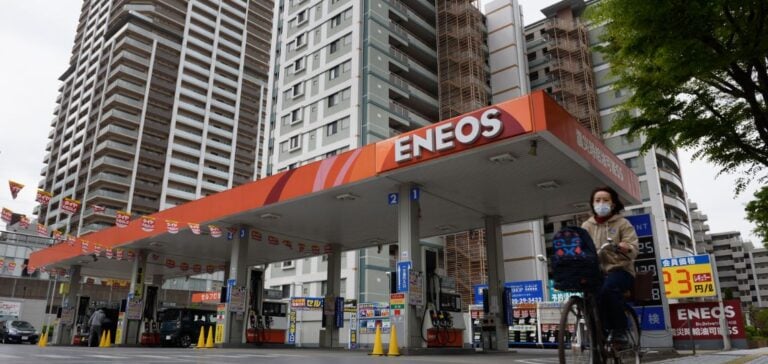ENEOS explores increased Canadian oil imports facilitated by the TMX pipeline expansion
Japan’s ENEOS Holdings, the country’s leading refiner, has announced a strategic approach to diversify its crude oil supply sources. During a financial results press conference, President and CEO Tomohide Miyata emphasized the company’s “overwhelmingly active” stance in purchasing crude oil on the spot market, including shipments from Canada.
Miyata explained that Canadian crude, known for its heavy characteristics, could be economically viable, particularly when combined with lighter US crude. However, this opportunity requires a detailed assessment of refining and storage economics, as only a few refineries have the infrastructure suited for such oil.
Strategic Import Diversification
In September, Japan imported more than 4.1 million barrels of North American crude oil, including 264,027 barrels of Cold Lake Blend, a heavy Canadian crude. This marked the first such import since November 2019 and reflected a reduction in the country’s reliance on Middle Eastern crude, dropping to 92.7% from 96% a year earlier.
With a sulfur content of 3.67% and an API gravity of 21.8, Cold Lake Blend was partially unloaded at the Kiire oil terminal in southwest Japan after an expedited transit enabled by the Trans Mountain Expansion (TMX) pipeline. This project, inaugurated in May, provides a direct route from Vancouver to Northeast Asia, significantly reducing logistical delays.
Impact of the TMX Pipeline
The TMX pipeline, with a capacity of 590,000 barrels per day, has transformed the economics of Canadian crude exports. Previously, heavy crude was transported via the Keystone pipeline to the Gulf of Mexico, requiring nearly a month to reach Asian refineries. Now, shipments can be delivered directly from Vancouver, making Canadian crude more competitive in Asian markets.
This logistical advancement has sparked growing interest among Japanese and South Korean refiners, despite higher operational costs during winter to maintain the fluidity of Canadian crude, which is often thick and waxy. Market analysts report that the price differential for Cold Lake Blend has narrowed, indicating increased demand for this crude in Asian refineries.
Market Developments
According to Platts Commodity Insights, Cold Lake Blend was assessed at an average discount of $5.37 per barrel to the West Texas Intermediate (WTI) CMA price in the fourth quarter. This represents a notable improvement compared to an average discount of $7.70 per barrel in the third quarter, highlighting the rising interest in this crude among Asian refiners.
ENEOS’ initiatives align with a broader energy diversification strategy aimed at securing supply while optimizing costs, especially as geopolitical tensions destabilize traditional Middle Eastern oil flows.






















